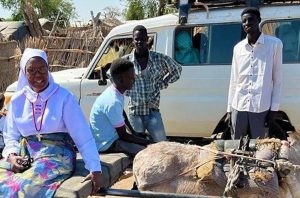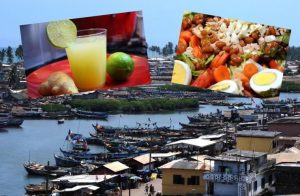In his latest apostolic exhortation, Laudate Deum, Pope Francis has highlighted the urgency of every person doing their best to minimize the effects of climate change.
The exhortation, published on the Feast of St Francis of Assisi this year, is a follow-up on his profoundly significant encyclical, Laudato Si’, published at Pentecost in 2015.
In the encyclical, Pope Francis had considered how all people on the planet have a moral and religious duty to care for our common home, to protect our Mother Earth from biodiversity loss, climate change, air, water and land pollution, ocean acidification, land-use changes, deforestation, etc.
There is a continuity from the encyclical to the new exhortation, in that in Laudate Deum, dedicated specifically to the climate crisis, Pope Francis quotes Laudato Si’ at least 19 times. The exhortation begins with his words “Praise God for all his creatures,” continuing the theme of Francis of Assisi, as he meditated on “the tenderness of Jesus for all the beings that accompany us along the way!” (LD1)
In the recent publication, Pope Francis decries that during the eight years since the publication of Laudato Si’ the climate crisis has heightened, to the point where the world, as a living space for all of God’s creatures, is collapsing. “Despite all attempts to conceal, gloss over, or relativize the issue, the signs of climate change are here and increasingly evident.” (LD5) Our responses have simply not been adequate. But we need to “move beyond the mentality of appearing to be concerned but not having the courage needed to produce substantial changes.” (LD56)
In a brief scientific section of the exhortation, the pope is unequivocal that global climate changes are caused by human activity. We are approaching a critical point beyond which no intervention will be able to halt a process once begun. Concerted global human activity is required to reverse the trajectory of changes to the climate.
In his analysis of what has brought us to the point where we are destroying our home, Pope Francis identifies the false philosophy of the “technocratic paradigm” which maintains that we can use technology and brute force to make the world better. His argument is that technology distances us from the natural home which God has created for us.
In fact, access to technology and the power to manipulate it have not been universally good for society. Pope Francis gives the example of the terrible destructive forces that have been unleashed in situations of war. We need only think of rockets, ‘drones,’ and weapons of mass destruction, to realize how, in the wrong hands, technology can be a curse rather than a blessing. “To suppose that all problems in the future will be able to be solved by new technical interventions is a form of homicidal pragmatism.” (LD57)
The exhortation describes how the powerful use “marketing and false information” as tools to shape public opinion. They make false promises that their projects will bring benefits to people whose natural resources or spaces will be adversely affected. As an example, we can cite the current contention over the proposed Eastern African Crude Oil Pipeline (EACOP): Oil has been discovered in the environmentally sensitive Lake Albert area of landlocked Uganda. The petrochemical multinationals wanting to exploit the oil need to transport it to the Indian Ocean, to be shipped to parts of the world that are more heavily dependent on oil. They propose to do this via a 1443km electrically-heated pipeline that will end in the historic Tanzanian port of Tanga.
The multinationals are promising that the oil extraction will “unlock East Africa’s potential” developing the communities living around the oilfields and along the route of the proposed oil pipeline, bringing employment, education, economic upliftment, progress, etc. In a classic example of ‘greenwash’ the companies mention none of the ecological dangers associated with the extraction, transportation or shipment of the heavy crude oil through key biodiversity areas, protected areas, along major water bodies like Lake Victoria, and adjacent to a Maritime Cultural Heritage site.
Among the regions of the world already most disrupted by climate change, Eastern Africa should be doing everything in its power to prevent the further contribution of fossil fuels to global greenhouse gases. Instead, the governments of Uganda and Tanzania want to reap the windfall income from the oil deposit, with no care for the future effects of climate change caused by this very same oil.
At the same time, governments of the region are lining up to receive funding for climate change mitigation and adaptation from the Green Climate Fund. They claim, quite rightly, that their countries have contributed the least to the anthropogenic buildup of greenhouse gases since the Industrial Revolution. Yet, they are not willing to keep the oil underground to reduce climate harm to future generations.
The pope traces a history of the various climate conferences and agreements – some successful, and others disappointing. He calls for the strengthening of multilateral organisations to monitor, review and penalise non-compliance with the ambitious accords and agreements of the annual conferences (“COPs”) of the United Nations Framework Convention on Climate Control.
When civil society is involved in an oversight role, this “creat[es] effective dynamics that the United Nations cannot.” (LD37) He repeats his assertion from Laudato Si’ (179) that “unless citizens control political power… it will not be possible to control damage to the environment.”
The exhortation holds high hopes for the COP28 climate conference to be held in Dubai in December this year. The pope is confident that human beings have the capacity “to transcend their petty interests and to think in bigger terms.” (LD54) With this altruistic spirit COP28 might be a last chance for countries to commit to binding transitions from fossil fuels to ‘clean’ sources of energy.
Effectively addressing the climate crisis will require a change of culture on a global scale, particularly “a broad change in the irresponsible lifestyle connected with the Western model.” (LD72) Every cultural change requires of us a personal change. In our homes we can participate in the larger process of transformation by reducing pollution and waste and consuming with greater care. Let us hope, for the sake of future generations, that it is not a case of too little, too late. (Open Photo: © FAO/Giulio Napolitano). (Peter Knox SJ. Jesuit Institute – South Africa)








